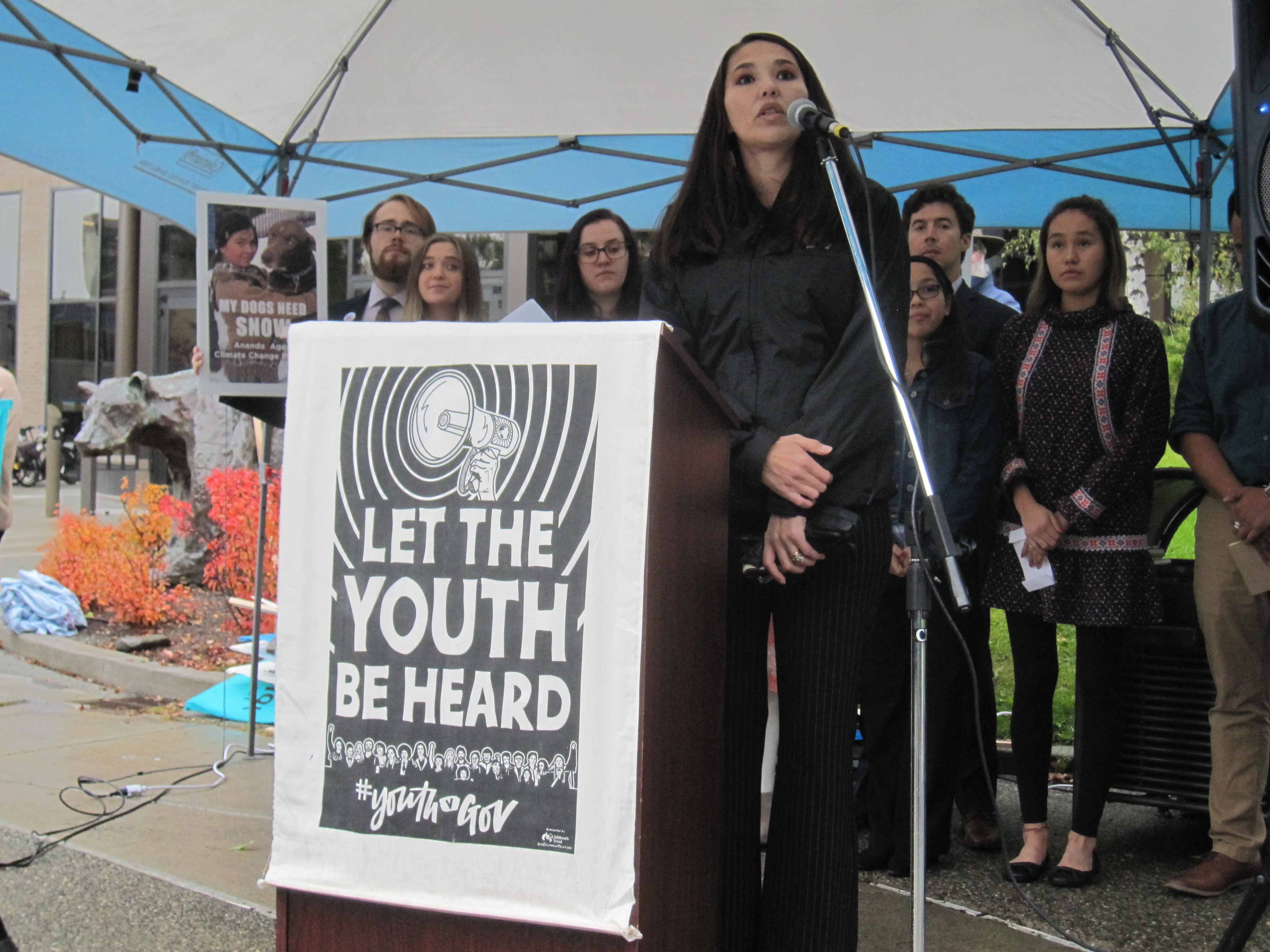Alaska court rejects a youth lawsuit over climate change
The suit targeted the state's pro-oil policies.

The Alaska Supreme Court on Friday dismissed a lawsuit brought by young plaintiffs that faulted the state government for pro-oil policies — policies that those plaintiffs said violated their rights to a healthy environment.
The court outcome was similar to those in other youth lawsuits over climate change — concluding that the policy changes the young plaintiffs were seeking were not judicial matters. The Supreme Court ruling affirmed a lower court ruling issued in 2018.
Climate change concerns, the state Supreme Court said in its 3-2 decision, are among the many factors that Alaska agencies and the legislature consider when setting policy, whether broad or on specific development actions. The youth plaintiffs have opportunities through the established public review process to argue for action on climate change, said the ruling, which affirmed a lower court’s decision issued in 2018.
[An Alaska youth climate change lawsuit has reached the state’s top court]
“The Alaska Constitution and relevant statutes do not leave plaintiffs without recourse. They may challenge discrete actions implementing State resource development and environmental policies. They may attempt to legislate by initiative. They also may continue advocating their position to the public and working to generate enough legislative political will to enact their preferred policies and implementations into law. But having a majority of elected legislators disagree with or lack the political will to enact or implement plaintiffs’ preferred policies does not justify an unconstitutional judicial remedy,” the ruling said.
The Alaska case resembled others filed around the nation, and even a prior case filed in Alaska but dismissed by the state Supreme Court in 2014. The youth plaintiffs in Alaska and elsewhere were represented by Our Children’s Trust, a non-profit law firm based in Oregon.
The most famous youth case on climate change, Juliana v. United States, was filed in federal court in Our Children’s Trust’s home state. The lawsuit targeted what it claimed was the federal government’s inaction on climate change. It was dismissed in 2020 by the 9th Circuit Court of Appeals, but the youth plaintiffs have now revised their lawsuit and have asked the District Court in Oregon to reconsider the new version.
The Alaska case had an important feature that distinguished it from the cases elsewhere.
While other climate lawsuits — including the previous lawsuit in Alaska — focused on allegations of government inaction and neglect, the just-dismissed Alaska youth lawsuit focused on affirmative actions by the state to encourage and expand oil development.
The state Supreme Court ruling acknowledged that difference, but it concluded that the judicial branch could not craft a blanket remedy applicable to the numerous decisions made about state energy and natural resource policy.
In a statement, the lead attorney for the Alaska plaintiffs expressed disappointment.
“With today’s decision, a majority of the Alaska Supreme Court betrayed their duty to safeguard the constitutional rights of these youth and serve as a check on the conduct of the state,” attorney Andrew Welle said. “The decision not only allows Alaska’s government to continue destroying the conditions necessary for human life, throwing literal and figurative fuel on the fire of an already critical climate crisis, it also makes the Court complicit in that conduct, further endangering the health, safety and futures of Alaskan children. The climate crisis requires urgent justice for Alaska’s youth and we will not stop fighting for justice on their behalf.”
However, the statement from Our Children’s Trust said the organization and its clients took some solace in a dissenting opinion written by Justice Peter Maassen and joined by Justice Susan Carney.
That dissent concluded that the plaintiffs are correct in asserting that they have a constitutional right to a livable climate, even if that right must be balanced by state responsibilities for economic development. Given “the urgency of the issue.” the Alaska judicial system at some point must decide how to weigh that right beyond questions of legal standing or justiciability, Maassen said in the dissent.
“Undoubtedly, Alaskans who bring future challenges to state actions alleged to pose an unacceptable risk to the climate will continue to assert that a livable climate is a constitutional right. . . .Our failure to answer the question now will not eliminate it but will only postpone our answer, in the meantime putting the burden of redundantly litigating it on plaintiffs, the State, and the trial courts, potentially to return to us on appeal again and again until we conclude that prudence finally requires an answer,” the dissenting opinion said.